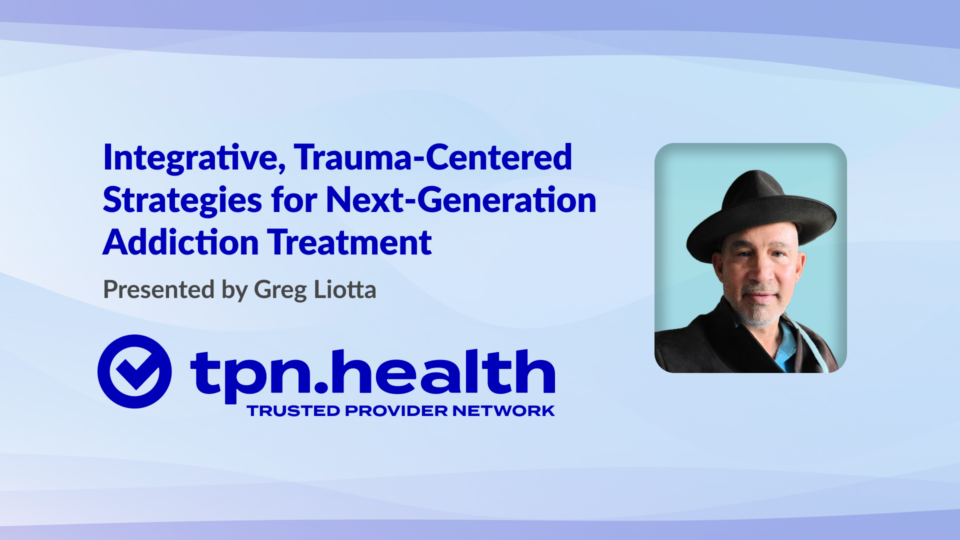Module 1: The Neurobiology & Physiology of Safety vs. Danger

Module 1: The Neurobiology & Physiology of Safety vs. Danger

Presented By
Dates and Times
-
-Live Webinar
Location
-
Live WebinarAccess virtually on TPN.health
Setting the foundation for the course, this module establishes the neurological and physiological response to traumas that manifest as compulsive self-soothing habits (addictions). We will discuss the differences between harm-reduction and abstinence-only approaches, and participants will learn how to identify sound principles for effective clinical engagement.
- • Counselors
- • Substance Use Disorder Professionals
- • Social Workers
- • Licensed Marriage and Family Therapists
The educational goal of this workshop is to increase knowledge about the relationship between trauma and addictions.
At the end of this course, participants will be able to:
-
Identify 2 chief differences between harm-reduction and abstinence-only approaches to substance use disorder.
-
Explain 2 ways trauma impacts neurological development.
-
Describe the influence of early attachment on the Social Engagement System.
-
List 3 practical examples of how to create safety for clients.
-
Give one example of how to practice each of the following: autoregulation, co-regulation, attunement, vocal prosody, proximity.
-
Holmes, J. (2014). John Bowlby and Attachment Theory (Makers of Modern Psychotherapy), 2nd Edition. Routledge.
-
The Gottman Institute. (2024). Still-Face Study: https://www.gottman.com/blog/research-still-face-experiment/
-
Kurtz, R. (1990). Body-Centered Psychotherapy: The Hakomi Method - The Integrated Use of Mindfulness, Nonviolence, and the Body. Liferhythm.
-
Kurtz, R. and Martin, D. (2019). The Practice of Loving Presence: A Mindful Guide to Open-Hearted Relating. Stone’s Throw Publications.
-
Maté, G. (2018). In the Realm of Hungry Ghosts: Close encounters with addiction. Toronto Vintage Canada.
-
Maté', G. and Maté, D. (2022). The Myth of Normal. Penguin Books.
-
Porges, S. W. (2023). Our Polyvagal World: How Safety and Trauma Change Us. W.W. Norton & Co.
-
Porges S. W. (2021). Cardiac vagal tone: a neurophysiological mechanism that evolved in mammals to dampen threat reactions and promote sociality. World psychiatry : official journal of the World Psychiatric Association (WPA), 20(2), 296–298. https://doi.org/10.1002/wps.20871
-
Porges S. W. (2022). Polyvagal Theory: A Science of Safety. Frontiers in integrative neuroscience, 16, 871227. https://doi.org/10.3389/fnint.2022.871227
-
Siegel, D. J. (1999). The developing mind: Toward a neurobiology of interpersonal experience. The Guilford Press.
TPN.health has been approved by NBCC as an Approved Continuing Education Provider, ACEP No. 7267. Programs that do not qualify for NBCC credit are clearly identified. TPN.health is solely responsible for all aspects of the programs.
Course meets the qualifications for hours of continuing education credit for LPCCs as required by the California Board of Behavioral Sciences. TPN.health is approved by the California Association of Marriage and Family Therapists to sponsor continuing education for LPCCs. TPN.health maintains responsibility for this program/course and its content.
Trusted Provider Network, LLC is recognized by the New York State Education Department’s State Board for Mental Health Practitioners as an approved provider of continuing education for licensed mental health counselors. #MHC-0220.
This course has been approved by TPN.health, as a NAADAC Approved Education Provider, for educational credits. NAADAC Provider #198061, TPN.health is responsible for all aspects of the programming. Counselor Skill Group: Legal, Ethical and Professional Development.
TPN.health, #1766, is approved to offer social work continuing education by the Association of Social Work Boards (ASWB) Approved Continuing Education (ACE) program. Organizations, not individual courses, are approved as ACE providers. State and provincial regulatory boards have the final authority to determine whether an individual course may be accepted for continuing education credit. TPN.health maintains responsibility for this course. ACE provider approval period: 03/31/2022 – 03/31/2025. Social workers completing this course receive 1.5 continuing education credits.
Course meets the qualifications for hours of continuing education credit for LCSWs as required by the California Board of Behavioral Sciences. TPN.health is approved by the California Association of Marriage and Family Therapists to sponsor continuing education for LCSWs. TPN.health maintains responsibility for this program/course and its content.
Trusted Provider Network, LLC is recognized by the New York State Education Department’s State Board for Social Work as an approved provider of continuing education for licensed social workers #SW-0654.
Course meets the qualifications for hours of continuing education credit for LCSWs as required by the California Board of Behavioral Sciences. TPN.health is approved by the California Association of Marriage and Family Therapists to sponsor continuing education for LMFTs. TPN.health maintains responsibility for this program/course and its content.
Trusted Provider Network, LLC is recognized by the New York State Education Department’s State Board for Mental Health Practitioners as an approved provider of continuing education for licensed marriage and family therapists #MFT-0097.
-
Waiting Room Opens
-
Workshop Begins
-
Workshop Ends

